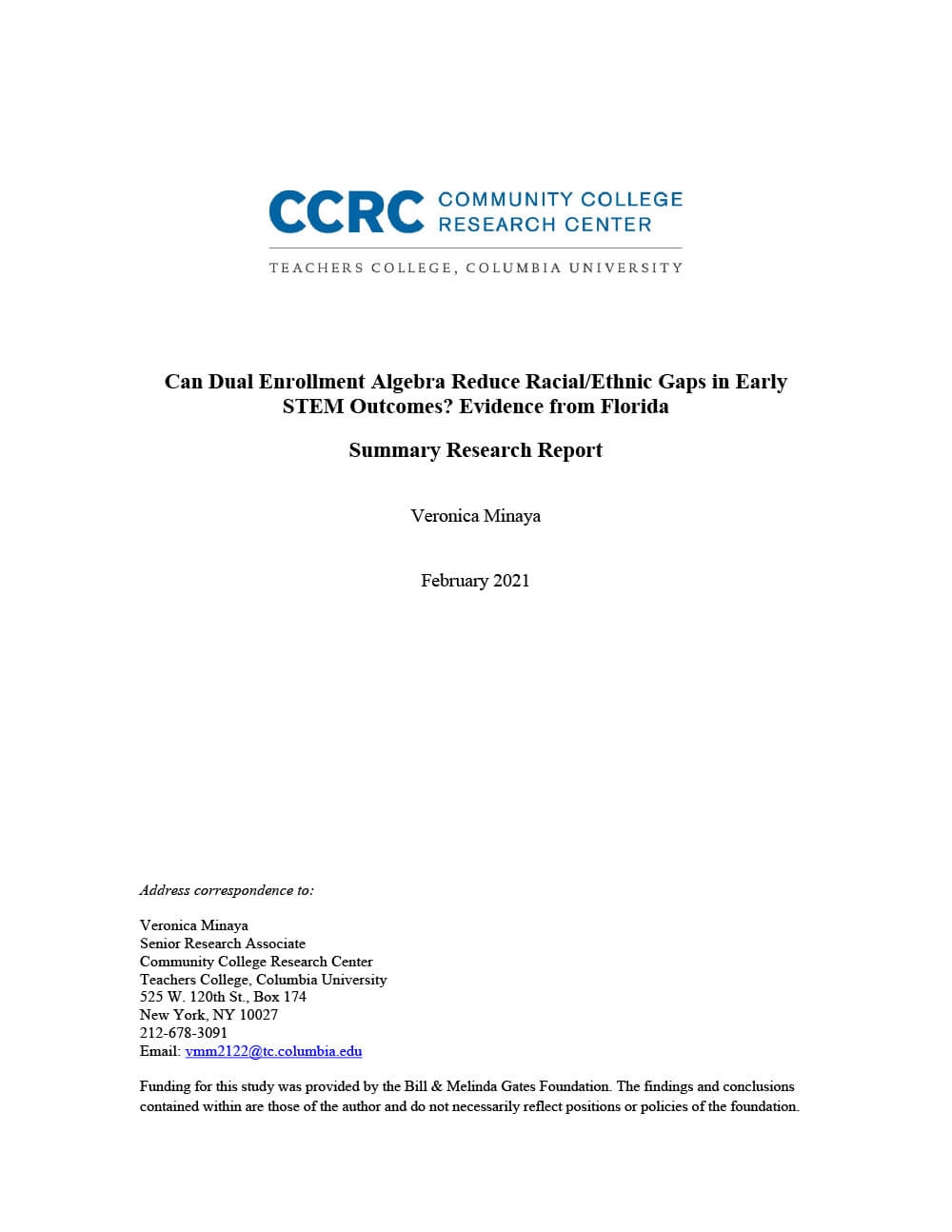
Math is an integral subject in nearly all STEM disciplines, and early exposure to advanced math coursework may encourage high school students to enter and persist in STEM fields in college. This report examines whether taking college algebra through dual enrollment affects high school graduation, college enrollment, and early STEM outcomes. The author uses a fuzzy regression discontinuity methodological design and rich transcript-level data on one cohort of Florida public high school students tracked post-high school into Florida community colleges and universities to estimate the effects of taking dual enrollment algebra.
Results show that among students on the margin of eligibility, taking dual enrollment algebra increases the likelihood that students enroll in a STEM program in college. They also show particularly strong effects on beginning college and persisting in college as a STEM major for Black and Hispanic students. The study does not detect an effect on overall rates of high school graduation or college enrollment. Broadly, the findings suggest that encouraging Black and Hispanic students to take college-level math courses in high school may help to advance equity in STEM fields.
